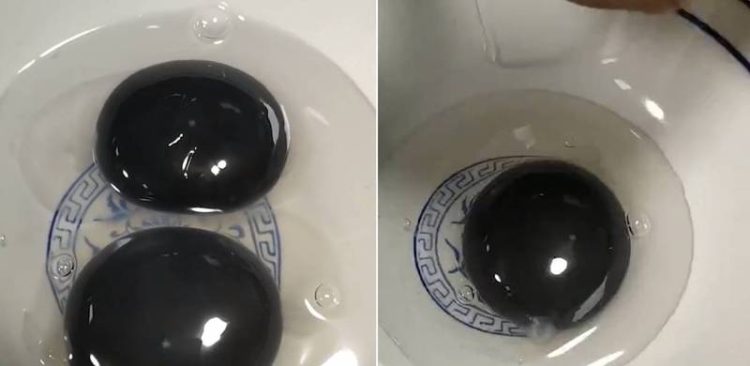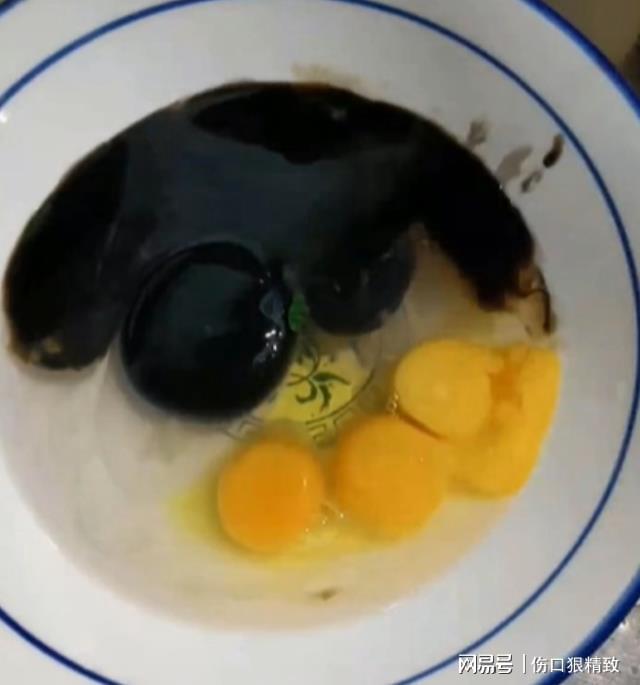
Experts Baffled by Goose That Allegedly Lays Black Yolk Eggs
Published on November 30, 2021 at 10:52 AM by Mc Noel Kasinja
Photos and videos of eggs with black yolks that were reportedly laid by a grey goose have been doing the rounds on social media and leaving experts scratching their heads.
The intriguing photos and videos of the black eggs were posted on Sina Weibo last week by a man surnamed Zhu from Hangzhou City, in China’s Zhejiang Province. He claimed that the eggs came from a friend of his who kept many grey geese on his farm, and who had gifted him batches of normal goose eggs before. Only this time, what looked like ordinary eggs of standard size and white color turned out to be somewhat of an oddity. When cracked, the eggs revealed a clear egg-white, but a dark grey, almost black yolk, instead of the normal yellow or light orange.
In a video that has since gone viral, Zhu explained that the eggs had all been laid by the same goose, and that, except for the yolk color, they smelled and looked like ordinary goose eggs. Apparently, neither he nor the owner of the goose had any idea why the yolk was this bizarre color.
After the photos and video of the black yolk eggs started spreading on Chinese social media, people started coming up with their own theories, some just humorous in nature, and others legit attempts of solving the mystery. Comments like “this goose must have ingested some ink” or “it must have the darkest heart” were among the first category of theories.

Someone suggested that the goose must have eaten a lot of black mulberries, which are known for their high melanin content. Zhu then confirmed that there were indeed many mulberry trees planted at the back of the farm where the geese were raised, but he was skeptical about this possible explanation.
“These geese are all raised freely. When mulberries fall to the ground, they run to eat them. They contain melanin, so it may also be caused by eating too much mulberry, but this explanation is not particularly reasonable, so I am not sure, in short, it is quite strange,” the man wrote.

A poultry expert asked by a Chinese news outlet to provide a potential reason for the black yolk said that the only thing he can think of is environmental pollution, adding that “scientifically speaking, such a phenomenon should not occur”.
Ettoday recently reported that experts at China’s Academy of Agricultural Sciences have expressed interest in studying the black yolks, but at the time of this writing their mystery has not been solved.
Last year, we featured the similarly strange case of an Indian farm where chickens sometimes laid eggs with bright green yolks.


